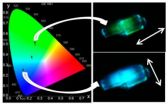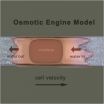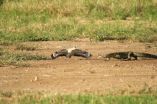(Press-News.org) Numerous studies have suggested a relationship between cardiovascular disease risk factors and prostate cancer. A new study by researchers at the University of California, San Diego School of Medicine, with colleagues in Norway, significantly refines the association, highlighting genetic risk factors associated with low density lipoprotein (LDL) cholesterol and triglycerides as key players and identifying 17 related gene loci that make risk contributions to levels of these blood lipids and to prostate cancer
The findings, published in the April 30, 2014 online issue of the International Journal of Epidemiology, provide new insights into the pathobiology of prostate cancer and may point to novel therapies to lower blood lipid levels that might help prevent prostate cancer – the second most common cause of cancer death among American men.
The research team, headed by senior authors Anders M. Dale, PhD, professor in the departments of radiology, neurosciences and psychiatry at the UC San Diego School of Medicine, and Ole Andreassen, professor of psychiatry at Oslo University, applied a genetic epidemiology method to assess statistics from multiple genome-wide association studies, looking for genetic overlap between the phenotypes for prostate cancer and cardiovascular disease (CVD) risk factors. In the case of the latter, they specifically investigated triglycerides, LDL and high density lipoprotein cholesterol, systolic blood pressure, body mass index, waist-hip ratio and type 2 diabetes.
The researchers also examined enrichment of single nucleotide polymorphisms – bits of DNA that vary among individuals – associated with prostate cancer and CVD risk.
LDL cholesterol and triglycerides displayed a strong association with prostate cancer.
"It's fair to say that risk relationships of various sorts have been proposed between prostate cancer and cardiovascular disease, although not comorbidity per se," said co-author Ian G. Mills, PhD, of the University of Oslo and Oslo University Hospital in Norway. "There is a lack of consistency across cohorts, however, in size and direction of effects, depending on cardiovascular risk factor considered. The significant risk association with LDL cholesterol and triglycerides versus the other traits at a genetic level was novel and unexpected."
Mills said the identification of 17 pleiotropic loci – specific sites in the genome which may affect the expression of a number of genes and influence a range of biological pathways, in this case affecting both prostate cancer and cardiovascular disease risk – was a key finding. He said the loci provide clues to the common regulatory elements that affect expression of disease-related genes. They may be incorporated into future disease risk test panels. And they might, ultimately, help shape "genetically stratified dietary or chemoprevention studies repurposing clinically approved drugs that regulate blood lipid levels" to alter the risk of developing prostate cancer, he said.
The current findings were made possible through use of a novel analytical approach developed by researchers at UC San Diego and University of Oslo, which previously had been shown to increase the statistical power for gene discovery in other diseases, including hypertension, neurological diseases, psychiatric disorders and immune-mediated diseases.
INFORMATION:
Co-authors include Francesco Bettella and Srdjan Djurovic, NORMENT - KG Jebsen Centre for Psychosis Research, Institute of Clinical Medicine, University of Oslo and Oslo University Hospital; Verena Zuber, Centre for Molecular Medicine and NORMENT, University of Oslo; Wesley K. Thompson, UCSD Department of Psychiatry; Andrew J. Schork, UCSD Cognitive Sciences Graduate Program and Center for Human Development; Rahul S. Desikan, UCSD Department of Radiology; the PRACTICAL Consortium and the CRUK GWAS.
Funding for this research came, in part, from the Kristian Gerhard Jebsen Foundation, the Centre for Molecular Medicine Norway, the Research Council of Norway (213837, 223273), South-East Norway Health Authorities (2013-123), National Institutes of Health grants R01AG031224, R01EB000790 and RC2DA29475, Cancer Research UK, the Institute of Cancer Research, The Everyman Campaign, The Prostate Cancer Research Foundation, Prostate Cancer UK, the National Cancer Research Network UK and The National Cancer Research Institute.
Prostate cancer and blood lipids share genetic links
Based on analyses of genome-wide association studies using novel analytical methods
2014-04-30
ELSE PRESS RELEASES FROM THIS DATE:
New hybrid material that changes colour according to the direction of the light
2014-04-30
This news release is available in Spanish. The aim with respect to hybrid materials with one organic component and another inorganic one is to combine the best attributes of each one into a single system. Labs across the world are working to develop new hybrid materials for technological applications in nanotechnologies, in particular, and these materials are already being used in lightweight materials for cars, sports equipment, in biomimetic materials, like prostheses, etc.
The hybrid material being sought after by the research group in the Department of Physical ...
Neanderthals were not inferior to modern humans, says CU-Boulder study
2014-04-30
The embargo has been lifted for the article, 'Neandertal Demise: An Archaeological Analysis of the Modern Human Superiority Complex.'
If you think Neanderthals were stupid and primitive, it's time to think again.
The widely held notion that Neanderthals were dimwitted and that their inferior intelligence allowed them to be driven to extinction by the much brighter ancestors of modern humans is not supported by scientific evidence, according to a researcher at the University of Colorado Boulder.
Neanderthals thrived in a large swath of Europe and Asia between about ...
Columbia engineers grow functional human cartilage in lab
2014-04-30
New York, NY—April 30, 2014—Researchers at Columbia Engineering announced today that they have successfully grown fully functional human cartilage in vitro from human stem cells derived from bone marrow tissue. Their study, which demonstrates new ways to better mimic the enormous complexity of tissue development, regeneration, and disease, is published in the April 28 Early Online edition of Proceedings of the National Academy of Sciences (PNAS).
"We've been able—for the first time—to generate fully functional human cartilage from mesenchymal stem cells by mimicking in ...
Throwing injuries no longer just for the pros
2014-04-30
ROSEMONT, Ill.—Baseball season is back and so are the injuries. But, elbow injuries, once seen as a problem for professional athletes, are becoming more prevalent among high school and middle school athletes due to increased play and competition at the youth level. Repetitive stress to a pitcher's ulnar collateral ligament (UCL)—an important stabilizing ligament of the elbow joint—can lead to pain and eventually to the inability to pitch and throw.
According to a literature review in the May 2014 issue of the Journal of the American Academy of Orthopaedic Surgeons (JAAOS), ...
Research finds a way to protect crops from pests and disease
2014-04-30
A team of international researchers has uncovered a mechanism by which plants are able to better defend themselves against disease-causing pathogens.
The work, led by Dr Jurriaan Ton and Dr Estrella Luna at the University of Sheffield, has identified the key receptor binding a chemical called BABA (β-aminobutyric acid) which is boosting plant immunity.
BABA has long been known for its protective effects against devastating plant diseases, such as potato blight, but has so far not been used widely in crop protection because of undesirable side effects.
"We have ...
Robots may need to include parental controls
2014-04-30
Older adults' fears that companion robots will negatively affect young people may create design challenges for developers hoping to build robots for older users, according to Penn State researchers.
Companion robots provide emotional support for users and interact with them as they, for example, play a game, or watch a movie.
Older adults reported in a study that while they were not likely to become physically and emotionally dependent on robots, they worried that young people might become too dependent on them, said T. Franklin Waddell, a doctoral candidate in mass ...
Water-based 'engine' propels tumor cells through tight spaces in the body
2014-04-30
Johns Hopkins researchers have discovered a new mechanism that explains how cancer cells spread through extremely narrow three-dimensional spaces in the body by using a propulsion system based on water and charged particles.
The finding, reported in the April 24 issue of the journal Cell, uncovers a novel method the deadly cells use to migrate through a cancer patient's body. The discovery may lead to new treatments that help keep the disease in check. The work also points to the growing importance of studying how cells behave in three dimensions, not just atop flat two-dimensional ...
Frog eggs Help MU researchers find new information on grapevine disease
2014-04-30
COLUMBIA, Mo. – Vitis vinifera are common grapevines and are the world's favorite wine-producing varietal. However, research has shown that grapevines are susceptible to powdery mildew, a plant disease, which contributes to significant crop loss for most commercial wine varietals that are cultivated each year. Now, researchers at the University of Missouri have used frog eggs to determine the cause of this disease, and have found that a specific gene in the varietal Cabernet Sauvingon, contributes to its susceptibility.
"Powdery mildew disease causes the leaves of the ...
Predators predict longevity of birds
2014-04-30
This news release is available in German. Ageing inevitably occurs both in humans and in other animals. However, life-span varies widely across species. Researchers of the Max Planck Institute for Ornithology in Seewiesen have now found a possible general mechanism explaining differences in longevity. They investigated life history data of nearly 1400 bird species and found that avian life span varies considerably across the entire Earth, and that much of this variation can be explained by the species' body mass and clutch size and by the local diversity of predator ...
Your stress is my stress
2014-04-30
This news release is available in German. Stress is contagious. Observing another person in a stressful situation can be enough to make our own bodies release the stress hormone cortisol. This is the conclusion reached by scientists involved in a large-scale cooperation project between the departments of Tania Singer at the Max Planck Institute for Cognitive and Brain Sciences in Leipzig and Clemens Kirschbaum at the Technische Universität Dresden. Empathic stress arose primarily when the observer and stressed individual were partners in a couple relationship and the ...
LAST 30 PRESS RELEASES:
Why does chronic back pain make everyday sounds feel harsher? Brain imaging study points to a treatable cause
Video messaging effectiveness depends on quality of streaming experience, research shows
Introducing the “bloom” cycle, or why plants are not stupid
The Lancet Oncology: Breast cancer remains the most common cancer among women worldwide, with annual cases expected to reach over 3.5 million by 2050
Improve education and transitional support for autistic people to prevent death by suicide, say experts
GLP-1 drugs like Ozempic could cut risk of major heart complications after heart attack, study finds
Study finds Earth may have twice as many vertebrate species as previously thought
NYU Langone orthopedic surgeons present latest clinical findings and research at AAOS 2026
New journal highlights how artificial intelligence can help solve global environmental crises
Study identifies three diverging global AI pathways shaping the future of technology and governance
Machine learning advances non targeted detection of environmental pollutants
ACP advises all adults 75 or older get a protein subunit RSV vaccine
New study finds earliest evidence of big land predators hunting plant-eaters
Newer groundwater associated with higher risk of Parkinson’s disease
New study identifies growth hormone receptor as possible target to improve lung cancer treatment
Routine helps children adjust to school, but harsh parenting may undo benefits
IEEE honors Pitt’s Fang Peng with medal in power engineering
SwRI and the NPSS Consortium release new version of NPSS® software with improved functionality
Study identifies molecular cause of taste loss after COVID
Accounting for soil saturation enhances atmospheric river flood warnings
The research that got sick veterans treatment
Study finds that on-demand wage access boosts savings and financial engagement for low-wage workers
Antarctica has lost 10 times the size of Greater Los Angeles in ice over 30 years
Scared of spiders? The real horror story is a world without them
New study moves nanomedicine one step closer to better and safer drug delivery
Illinois team tests the costs, benefits of agrivoltaics across the Midwest
Highly stable self-rectifying memristor arrays: Enabling reliable neuromorphic computing via multi-state regulation
Composite superionic electrolytes for pressure-less solid-state batteries achieved by continuously perpendicularly aligned 2D pathways
Exploring why some people may prefer alcohol over other rewards
How expectations about artificial sweeteners may affect their taste
[Press-News.org] Prostate cancer and blood lipids share genetic linksBased on analyses of genome-wide association studies using novel analytical methods




